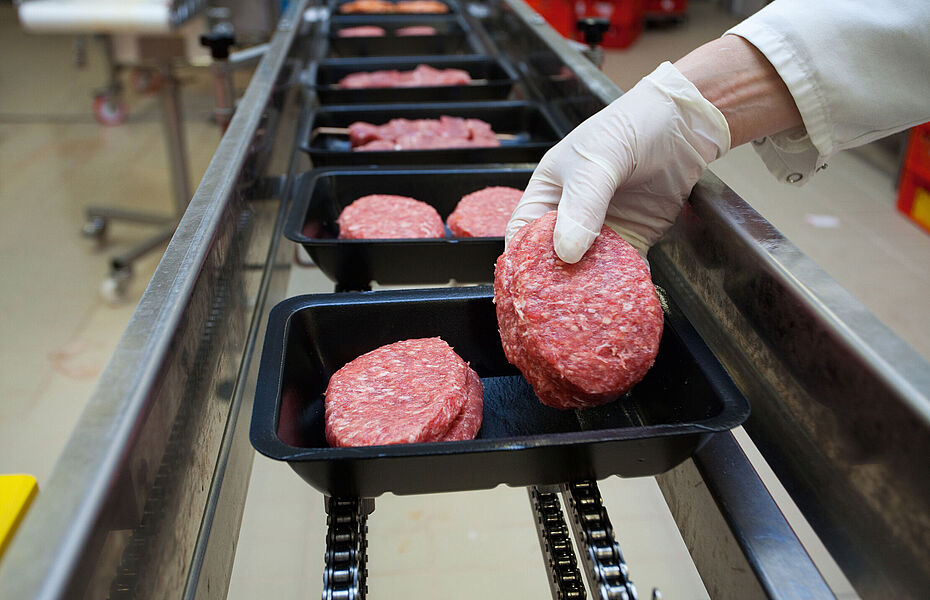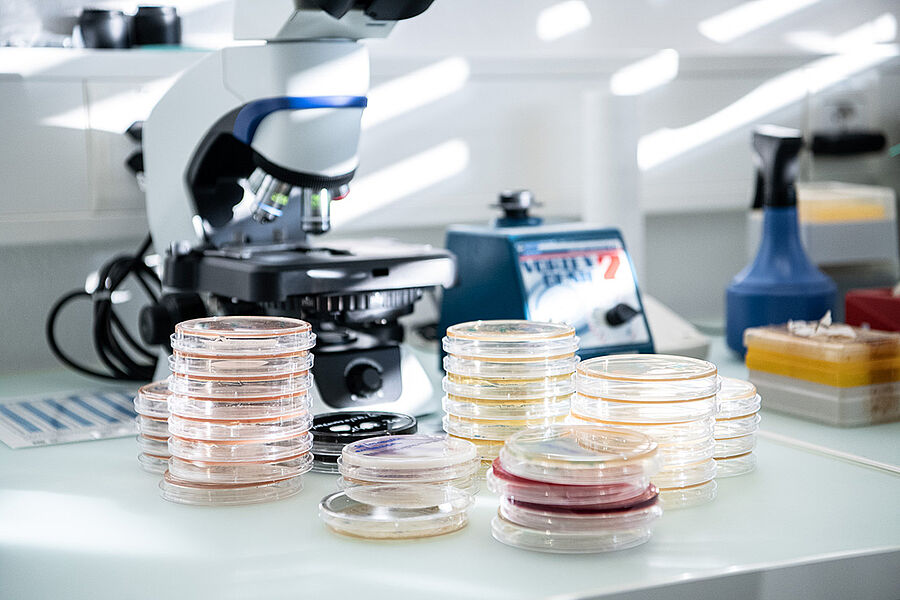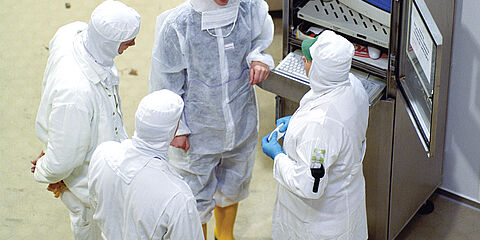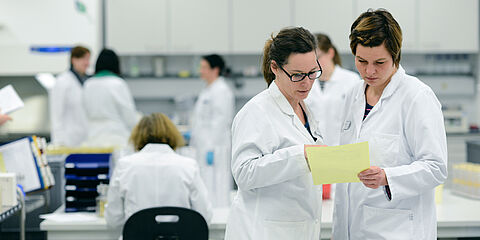Listeria monocytogenes – Good process practice is essential
Food safety is a top priority, especially when it comes to detecting potentially dangerous bacteria, such as listeria monocytogenes.

Listeriae survive on surfaces in food processing environments and also multiply at lower temperatures. Due to this high persistence, listeria can occur in food groups such as milk and dairy products, meat and meat products or fish and fish products if hygiene is poor during processing. The ingestion of contaminated food can lead to the infectious disease listeriosis. This leads to severe symptoms, particularly in pregnant women and people with weakened defences.
Regulation (EG) Nr. 2073/2005 sets specific microbiological limits for the presence of listeria monocytogenes in food. The regulation stipulates that food businesses are obliged to regularly take samples from the food production environment and analyse them for the presence of listeria monocytogenes.

Especially when taking samples, it is essential for food businesses to follow good practice that takes into account the increased persistence of listeria. The guidelines of the European Union Reference Laboratory for Listeria monocytogenes (EURL Lm) serves as valuable support here and recommends a risk-based approach to sampling. According to the EURL Lm guidelines, samples should be taken during the production process to maximise the detection of listeria monocytogenes. Detection after cleaning and disinfecting should not be taken as a guarantee of the effectiveness of the cleaning and disinfecting protocol. The guideline also recommends sampling a sufficiently large area of 1000 cm² to 3000 cm² to increase the probability of detection.
In addition to the EURL Lm, the Lebensmittelverband Deutsch e. V. (German Food Association) also published the comprehensive guideline „Leitlinie für Gute Verfahrenspraxis Empfehlungen für Präventionsmaßnahmen gegen Listeria monocytogenes in bestimmten Bereichen der Lebensmittelherstellung“. The document was prepared in the light of recent listeriosis outbreaks at the request of the Working Group on Meat and Poultry Hygiene and Special Issues of Food of Animal Origin of the German Working Group on Health Protection in the Food Chain (AFFL) in cooperation with experts from industry, authorities, and science.
We will be happy to support and advise you on this topic and offer you the appropriate microbiological analyses. We look forward to your enquiry.
Your contact to our experts
For your food hygiene and safety - feel free to contact me!
- Christina Witt
- +49 2505 89-633
- food@wessling.de




